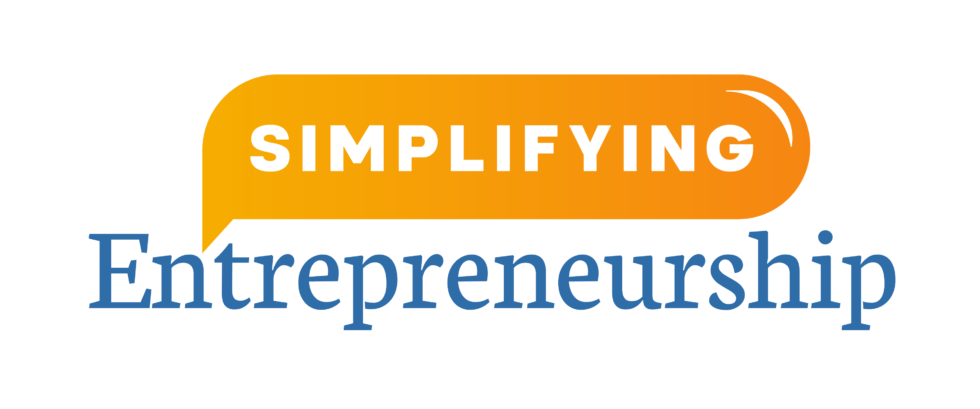To be a successful entrepreneur, you must become a leader. And to become a leader, you must earn your audience’s trust.
Your personal brand is a large part of that. But it’s more than your profile picture or email sign-off. It’s essentially your reputation
When people know and respect you, they’re more likely to consider your business. That’s especially true for solopreneurs and service providers!
So, establishing your thought leadership is vital to a strong personal brand. But how do you do that?
Hint: It takes more than LinkedIn connections or fancy websites.
Let’s take a look.

Become Visible
Your first step is to make your online presence both visible and relevant. Determine what people are seeing about you and your business — or if they’re seeing you at all! You can’t refine your personal brand if you’re not showing up in Google results.
So, start with an audit to discover how you can improve. Look for gaps between your professional identity and your digital presence. If someone Googles “Peter Mohr,” for example, they should find my entrepreneur coaching site, my shoe store, this blog, and so on.
Make sure that all your key services or achievements appear alongside your name on various channels.
Let’s say you’re positioning yourself as a body-positive fitness coach. Ideally, a Google search for your name pulls up your article about exercising with disabilities. Your LinkedIn profile says “Body-Positive Fitness Coach” right on it.
To conduct the audit, open an incognito window in your browser. Go to Google, and enter your name. If you have a common name, you can add a single keyword, e.g. “John Smith lawyer.”
Then, see what comes up on the first few pages. Do the results reflect you, your enterprise, and your professional activities? (Keep an eye out for anything embarrassing, too!)
Here’s how to fill in the gaps:
Once you become more visible, you’re ready to start building your reputation.

Make Your Promise
Your business ultimately comes down to the promise you make your customers. And your personal brand stems from the promise you make your audience.
What can people expect from you? What do they look forward to hearing from you?
Thought leadership isn’t enough. You must talk to your audience about the right topics, in the right way. Communicate your promise to them.
For example, if you’re a body-positive fitness coach, you might promise non-judgmental personal training. Your content may focus on inclusivity and adaptability. Your core values may be compassion over competition,
So, your entire professional presence, online and off, should align those themes and services. Think of everything you do and create as a way of keeping your promise.
Your promise doesn’t have to be identical to your business’s promise. Often as entrepreneurs, we strive to create something greater than ourselves. Your company might promise a specific blend of products, services, and customer experience.
You alone can’t provide all of that. But it’s your guiding vision that makes the business successful. Ideally, your personal brand promise stems from that.
Make a list of what you’d like other people to think of you professionally. Which attributes complement your enterprise’s core promise? Are they any key values or areas of expertise that you and your business share?
Once you’ve outlined your personal brand’s main promise, turn it into meaningful action and speech.

Lead with Heart
Remember, your personal brand is your reputation. And those who keep their promises have a good reputation!
Whether you’re developing content or conversing with others, make sure you’re keeping your brand promise. Let’s say you’re a guest on a podcast. Will listeners hear your name and ideas and decide, “Yeah, I like him!”
And then, if they click on your website in the show notes, will they discover content that matches their expectations?
The best way to ensure consistency and meaningful connections is to lead with your heart. And as luck would have it, there’s a great model called the “Brand Heart.”
Your Brand Heart revolves around your purpose, vision, and values. Perhaps you wrote up these elements for your business brand kit. But the Brand Heart focuses on how you position yourself as a source of value.
It’s a fitting metaphor because we entrepreneurs are famously passionate. You’ve poured your heart and soul into your business. Yet when you talk about yourself, it seems irrelevant, unbecoming, or even arrogant.
Here’s the truth: it’s none of the above!
While we’ve long been taught to be objective and aloof as professionals, we earn more trust and respect when we act like humans.
People want to connect with other people. A “personal brand” that’s simply a nice monogram and tagline doesn’t make a connection. Those surface details help you get recognized, but your authentic voice is what builds your reputation.
And that creates a personal brand that people enjoy, admire, and engage with.
Wrapping Up
So, after you’ve made yourself visible, named your values, and put yourself out there, focus on keeping your promise!
Whenever you write a post or sit for an interview, ask yourself, “Is this what my ideal audience expects of me? How am I showing my expertise?”
And most importantly, “Am I providing the value that I said I would?”
If you can align your professional presence with that promise, you’ll forge a lasting personal brand that both supports and surpasses your enterprise.
This article was inspired by a “Business Owner Breakthrough” episode of the Simplifying Entrepreneurship podcast. You can listen here.





0 Comments